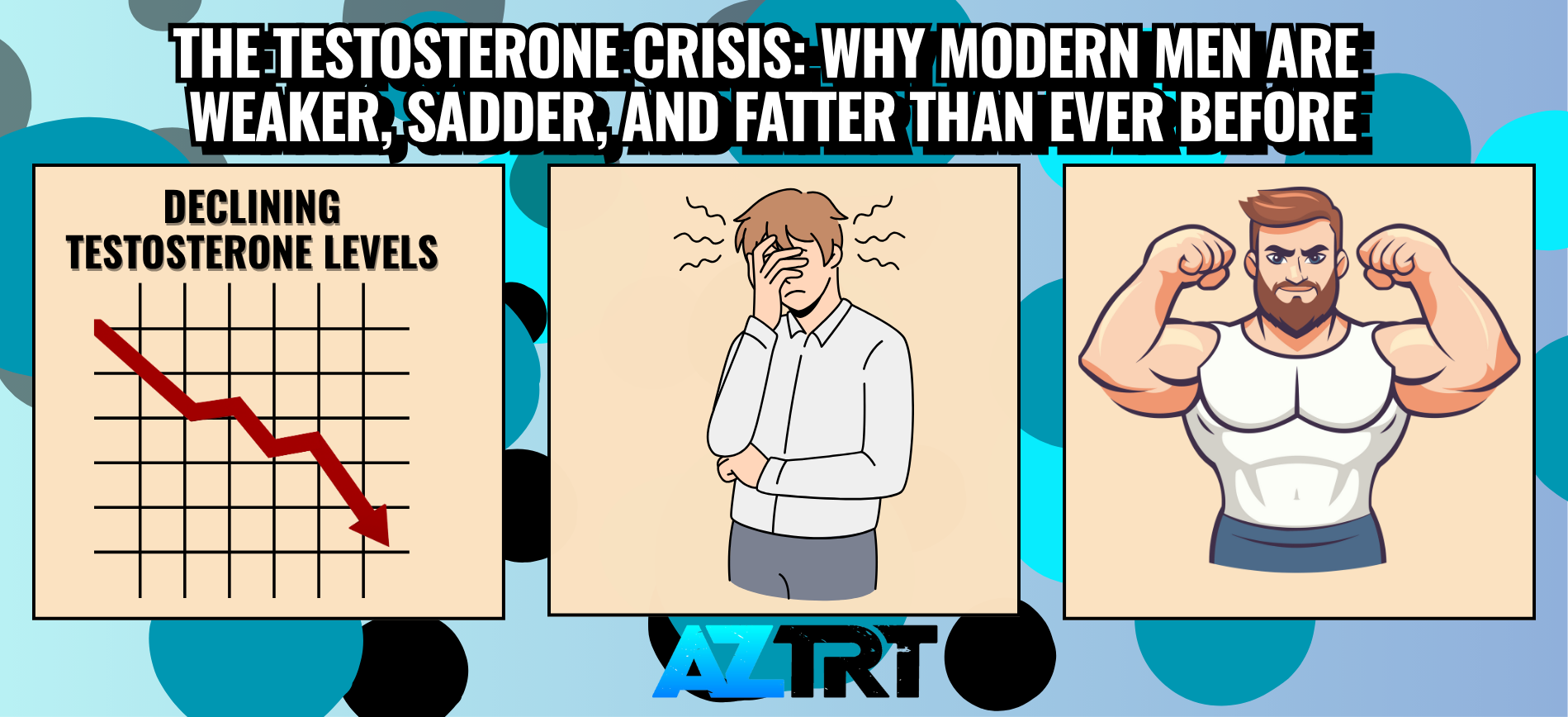
Can Testosterone Therapy Replacement Cause Hair Loss? A Comprehensive Guide For Men
As men age, many experience a decrease in testosterone levels, commonly referred to as "low T." This drop can lead to various physical and emotional symptoms, including fatigue, decreased libido, weight gain, and even hair loss. If you live in Arizona and are experiencing these low testosterone symptoms, you might be considering testosterone replacement therapy (TRT). But you may be wondering: Can testosterone replacement therapy cause hair loss?
Understanding Testosterone and Hair Loss
Before diving into the relationship between TRT and hair loss, it's crucial to understand the role of testosterone in the body. Testosterone is a hormone that contributes significantly to muscle mass, bone density, and overall well-being. However, it also plays a role in hair growth, and its levels can significantly influence hair follicles.
The Connection Between Low Testosterone and Hair Loss
Low testosterone levels can actually lead to hair loss, particularly in men. Many men with low T notice thinning hair or a receding hairline. This occurs because testosterone plays a vital role in the hair growth cycle. Therefore, supplementing testosterone through replacement therapy can often assist in restoring hair growth, rather than causing loss.
Can TRT Lead to Hair Loss?
The short answer is it depends .
-
Dihydrotestosterone (DHT): TRT can increase the levels of DHT, a derivative of testosterone. DHT is known to shrink hair follicles in genetically predisposed men, potentially causing hair loss in those who are already susceptible to male-pattern baldness.
-
Individual Response: Each man responds differently to TRT. While some may experience hair regrowth, others might find their hair thinning after starting treatment.
-
Underlying Conditions: If there are pre-existing conditions involving hormones or genetics related to hair loss, TRT may exacerbate those issues.
Benefits of Clinically Supervised Testosterone Replacement Therapy
While concerns about hair loss are valid, it’s essential to remember that TRT has many benefits when conducted in a medically supervised manner. Here are some reasons to consider testosterone replacement therapy in Arizona:
- Improved Energy Levels: Combat fatigue and reclaim your vitality.
- Enhanced Libido: Rekindle your sexual drive and improve relationships.
- Increased Muscle Mass: Achieve better body composition and strength.
- Better Mood: Combat feelings of depression and anxiety associated with low T.
Why Choose a Provider-Prescribed TRT?
It’s paramount to choose a qualified provider who understands your individual needs. At an AZ TRT clinic , you'll receive a comprehensive evaluation that includes:
- Blood tests to measure testosterone levels and evaluate overall hormone health.
- A tailored treatment plan based on your unique symptoms and health goals.
- Ongoing monitoring to adjust therapy as needed, ensuring optimal results with minimal side effects.
FAQs about Testosterone Replacement Therapy and Hair Loss
1. Will testosterone replacement therapy help my hair regrowth?
While TRT can help improve hair growth in some men with low testosterone, it may also lead to increased DHT, which can cause hair loss in those predisposed to baldness. Your provider can offer insights into your specific risks.
2. What are common low T symptoms?
Common symptoms of low testosterone may include: - Fatigue - Low libido - Weight gain - Depression - Decreased muscle mass - Hair thinning
3. Is hair loss reversible after starting TRT?
This can vary. If hair loss occurs due to TRT, some men may notice regrowth once treatment is adjusted or stopped. Consulting your provider can help you navigate the best approach.
4. How can I find a “TRT near me” in Arizona?
Search for trusted AZ TRT clinics that offer personalized, clinically supervised hormone replacement therapy for men. Consultations can often be arranged virtually for your convenience.
Take the Next Step Toward Feeling Your Best
If you're a man between 30 to 60 experiencing symptoms of low testosterone, don’t let worries about hair loss hold you back from seeking proper treatment. Clinically supervised testosterone replacement therapy in Arizona offers a pathway to improved health and vitality.
Ready to learn more? Book a free virtual consultation with AZTRT today! Our compassionate team is here to listen to your concerns and help tailor a plan that fits your unique needs.
Disclaimer
This blog post is for informational purposes only and should not be considered medical advice. Always consult with a healthcare provider for personalized medical guidance.



